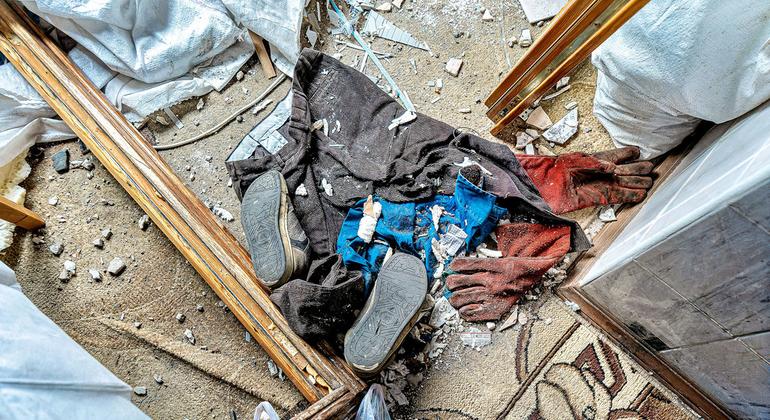The United Nations Human Rights Council recently convened to discuss updates on allegations of ongoing human rights abuses in various countries, including Belarus, North Korea, Myanmar, and Ukraine. The Council heard from the Commission of Inquiry on Ukraine, which reported that enforced disappearances of civilians by Russian authorities have been widespread and systematic, potentially amounting to crimes against humanity.
Chair of the independent investigative panel, Erik Mose, stated that many individuals have been missing for extended periods, with some having died. The fate and whereabouts of many remain unknown, causing immense anguish for their families. Requests from families to Russian authorities for information about missing loved ones often yield unhelpful responses. In one instance, a young man was detained and beaten when he inquired about his missing girlfriend.
The Commission’s latest report also highlighted the use of torture by Russian authorities. Panel member Vrinda Grover shared a harrowing account of a civilian woman who was raped during confinement by Russian authorities. The perpetrators callously dismissed her pleas, dehumanizing her in the process. The Commission concluded that Russian authorities committed war crimes by using rape and sexual violence as a form of torture.
Further investigations confirmed that members of Russia’s Federal Security Service (FSB) played a significant role in ordering or committing torture during detention and interrogations. Despite allegations of rights abuses by Ukrainian forces, the Commissioners emphasized that they have documented violations by Ukrainian forces whenever they were found.
Commissioner Pablo de Greiff highlighted the breakdown in communication with Russian authorities, noting that over 30 requests for information about possible Ukrainian attacks went unanswered. There is evidence of reprisals against individuals collaborating with Russian authorities. The report also detailed incidents in which Russian armed forces killed or wounded Ukrainian soldiers who were captured or attempting to surrender, constituting war crimes.
The Council heard disturbing testimonies of the brutal treatment inflicted by Russian authorities on civilians and soldiers. The lack of accountability and disregard for human rights in the conflict in Ukraine was a major concern for the Commissioners. The widespread and systematic nature of enforced disappearances and torture indicated a grave violation of international human rights law.
The report underscored the urgent need for accountability and justice for the victims of these heinous crimes. The Commissioners called for a thorough investigation into the actions of Russian authorities and the prosecution of those responsible for human rights abuses. They emphasized the importance of holding perpetrators accountable to prevent further atrocities and provide closure to the families of the victims.
The Council also discussed allegations of human rights abuses in Belarus, North Korea, and Myanmar. The situation in these countries was equally troubling, with reports of widespread violations of fundamental rights and freedoms. The Commissioners urged the international community to take decisive action to address these human rights crises and protect the rights and dignity of all individuals.
In conclusion, the UN Human Rights Council’s session shed light on the grave human rights violations occurring in various countries, particularly in Ukraine. The testimonies and findings presented by the Commission of Inquiry highlighted the urgent need for accountability, justice, and protection of human rights in conflict zones. The international community must work together to address these violations and ensure that perpetrators are held accountable for their actions.









